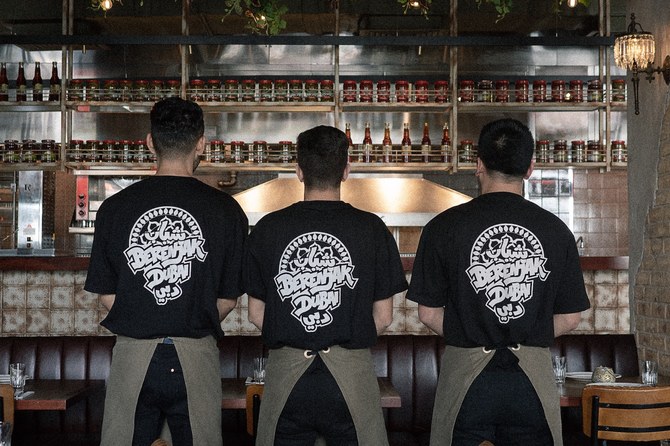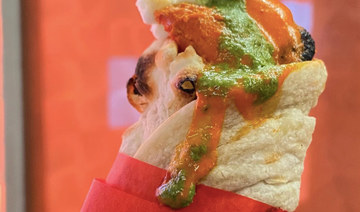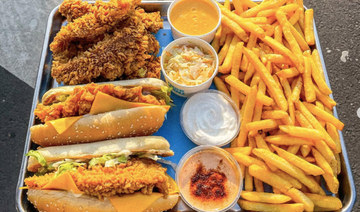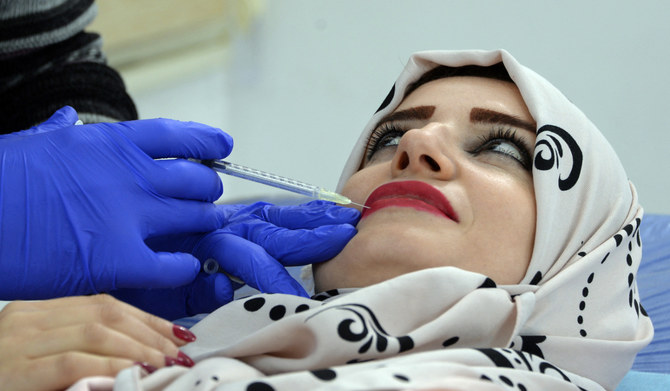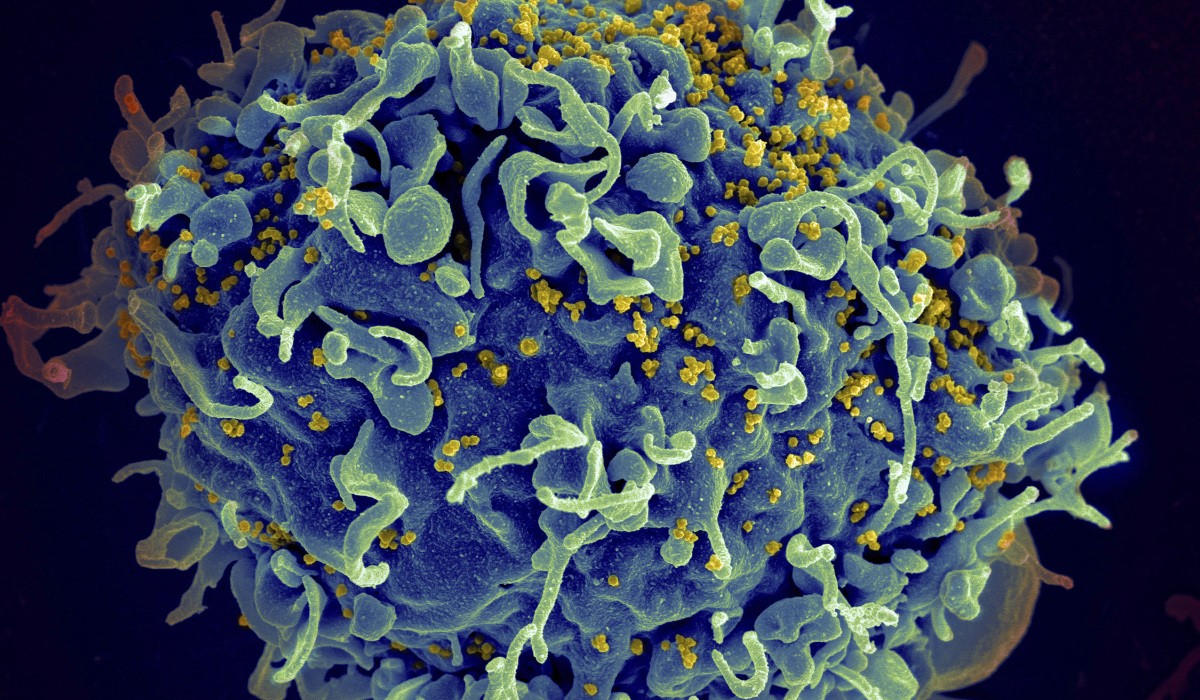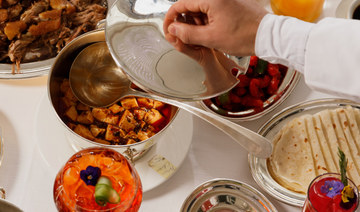DUBAI: As children and toddlers spend more time tethered to their screens, experts across the Gulf region are warning of the potential health ramifications facing a young generation of digital addicts glued to mobile devices, iPads and television screens.
The impact on sleep and dietary and social habits, coupled with risks to a child’s posture, eyesight and communications skills are all risk factors for youngsters across the region, according to experts.
In Canada and the US, experts say children should not use screens before they are at least 18 months old.
The UK, like the Arab world, avoids setting limits on screen time use for children of all ages. However, according to a Saudi-based expert, the region is home to some of the youngest digital addicts in the world — and it is increasingly affecting the well-being of many.
“Health professionals are talking about screen time because they are starting to see some effects on child health,” said Dr. Wasfy Haddad, a consultant pediatrician and head of the pediatric department at Riyadh’s Aster Sanad Hospital. “Due to widespread use and the diversity of screen devices, studies on their side effects are still emerging.
“As screens are used for work, education, communication and leisure, it is often difficult to control the amount of the time children spend using the screen instead of taking part in other important children’s activities.”
While screen time can keep children entertained or distracted and is used in an educational setting by teachers, Dr. Haddad said the time spent in front of a screen, plus the quality of the content on the screen, has been linked to a number of negative outcomes.
“These include weight disturbances due to a disorganized, unconscious amount of food they are eating (during screen time). Junk food advertisements also have an impact on food habits and its quality, and parents eventually will lose their control on the feeding policy at home,” he said.
FASTFACT
• 70 percent of parents in Saudi Arabia say they want to set limits and parental controls on connected devices, the second highest number across EMEA.
• 59 percent of parents across Europe, Middle East and Africa allow their child to go online alone in their bedrooms.
•34 percent of parents in Saudi Arabia allow their child to go online alone in their bedrooms.
“Sleep onset is also delayed, making the total sleeping hours less than usual due to light emissions from the screen, which keeps the brain alert for a significant amount of time after the screen time finishes.
“Screen time also has its impact on communication skills, leading to the isolation of the child for a long time from people around, missing out on the opportunities to develop language through play and interaction with others.”
As concerns mount over the effects of digital addiction, Dr. Haddad suggests that screen time be banned for children under the age of two and that parents ensure every child gets between eight to 12 hours sleep at night, while one hour of exercise should always take priority over screen time.
Experts also advise parents and minders to set screen time guidelines for families and involve the older children in the decision-making — with his recommendations being a maximum of two hours a day. Families should also encourage a “digital blackout” during certain times of the day, such as during meals, and keep TVs out of bedrooms.
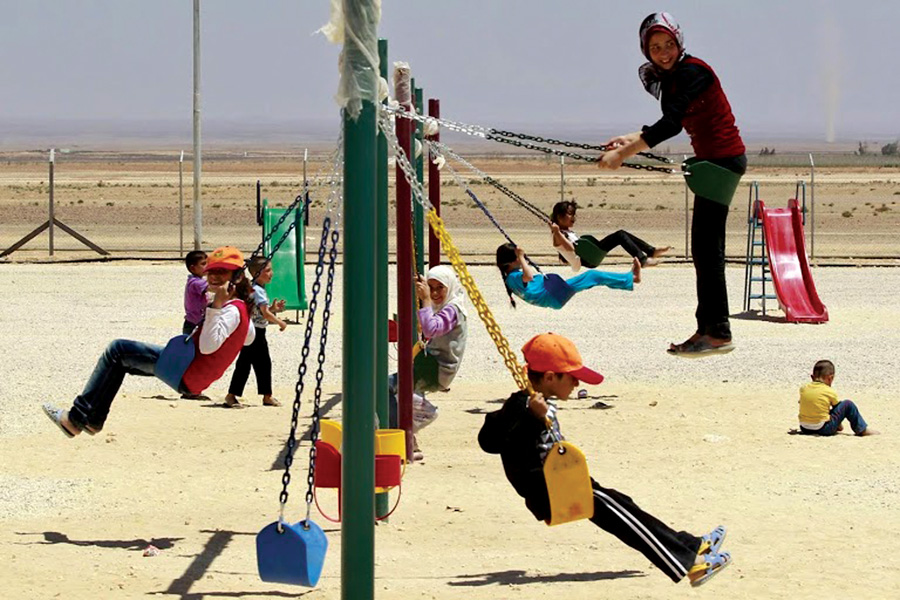
Experts are concerned that children are spending more time on their screens than they do in activities such as playing outdoors. (Reuters)
According to a study by Norton, Saudi Arabia has some of the youngest screen addicts in the world, with children in the Kingdom on average receiving their first phone at the age of seven.
Furthermore, children in Saudi Arabia spend more time in front of a mobile screen than playing outdoors, with more than a quarter of parents saying their child or children spend more time than their parents online.
On average across Saudi Arabia, children spend close to three hours of their leisure time on mobile devices every day, almost an hour longer than the average amount of time spent playing outdoors. This meant the Kingdom ranked third globally for screen time on mobiles, while the UK topped the worldwide charts.
According to Nick Shaw, vice president and general manager of Symantec’s Norton business in the Europe, Middle East and Africa (EMEA) regions, “Despite the challenges, parents in Saudi Arabia are very keen to manage their child’s device use. Almost three out of four parents in Saudi Arabia (70 percent) say they want to set limits and parental controls on connected devices, the second highest number across EMEA.
“Over half of parents across EMEA (59 percent) allow their child to go online alone in their bedrooms, and over a third (35 percent) admit this is true even for children aged from five to seven. For parents in Saudi Arabia, 34 percent allow their child to go online in their bedroom.”
Saudi Arabia has some of the youngest screen addicts in the world, with children on average receiving their first phone aged seven.
Norton Study
A separate YouGov study has also found that close to nine in 10 children across UAE and Saudi Arabia have access to tablets, smartphones or other handheld electronic devices with screens.
At the same time, digital addicts are getting younger.
Dr. Sameh Abdulmagid, a specialist in pediatrics at Bareen International Hospital in UAE’s Mohammed Bin Zayed City, is blunt when asked about the potential harm of excessive screen time.
“Screens have become a great danger for our children. It disentangles the child from the real world and imprisons him in the process,” Dr. Abdulmagid told Arab News.
“Observing the contents of what our child is connected to is very important and has high impact in limiting the bad effects of the digital screens.”

Dr. Abdulmagid also advised parents to take measures to limit screen time.
“They should encourage their children to be involved in real-life events, share face-to-face moments, play with others to make them more social and develop social characteristics.Providing the child platforms for activities such as arts and crafts, sports and club activities will help in the physical, mental, and emotional development of the child.
“On the other hand, if parents must allow access, there should be rules for children in using screens. For example, postpone or limit the time for using it on a daily basis.”
Dr. Abdulmagid said there is much debate how long parents should let children to use screens.
“One hour daily is reasonable enough to avoid affecting the sleeping time and eating time of children,” Dr. Abdulmagid said.
“Moreover, the hazards of obesity and lesser physical activities can lead to serious health problems such as developing Type 2 diabetes, cardiovascular diseases and other physical impairments.
“Unfortunately, we have a growing number of children who suffer visual, psychological and physical problems as an after-effect of spending many hours in front of screens.”






